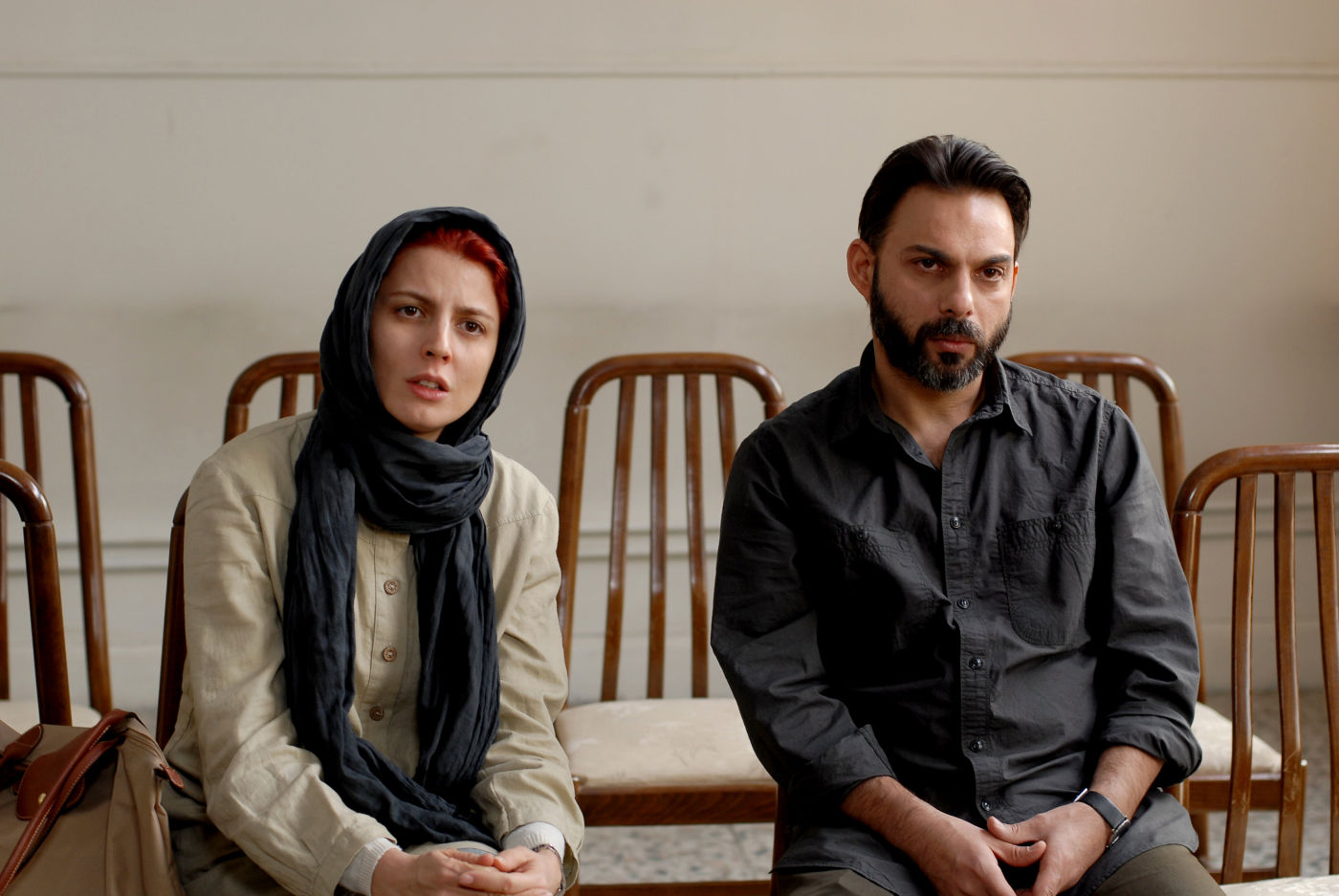Might I offer a counter to all the cries of “greatness!” associated with A Separation? I call it the New Jersey Test – you take any foreign or controversial film, keep the screenplay intact, but Anglo-cize it and move everything to New Jersey and then ask yourself, “is this still a must see film?” The Artist passes the New Jersey Test easily, as does Girl with the Dragon Tattoo. A Separation, everybody’s new favorite Irani falafel doesn’t, not by a long shot. Same screenplay, same director with white Jersey-ites instead of Middle Easterners and you call it, “a pretty good episode of law and order,” nothing more. Hence, I have no problem being at odds with the critical acclaim masses here.
A Separation opens with a legal proceeding, which is fitting as more than half the film is spent in legal proceedings. Pinch me. Nader (Peyman Moadi) and Simin (Leila Hatami, the Persian Téa Leoni) don’t see eye-to-eye on their future and decide to separate, as the film suggests. They know the situation is bad; they don’t really want to, but neither envisions just how ugly the consequences will get.
The story we choose to follow is his, not hers. Nader gets the most face time and custody of the couple’s only child, 11-year-old Termeh (Sarina Farhadi). Nader also has an Alzheimer’s-stricken father who needs care 24/7. Without Simin around, help is hired in the form of Razieh (Sareh Bayat). She’s nineteen weeks pregnant, but it’s impossible to tell through the layers of clothing she wears. She’s also far from the ideal caretaker for a senile old man. When he wets himself, she needs a cleric to get special religious dispensation to clean the old man. A few days later, awful happens: one ugly incident in the home leads to anger and a miscarriage. We know what we saw in the tragic turn of events, but the rest of the film (well over an hour) is entirely devoted to he said/she said court battles.
Is this what you really want in a film? Angry arguments? “It’s your fault you miscarried”?
Let’s look at Nader, the biggest player in the film. He’s a very complex man. He reacts strongly and poorly to most negative stimuli, but often rethinks his position in time. I like that about the character, but I don’t like the character himself. Get me? Take a moment in which Termeh pumps gas for her father. She returns to the car and Nader asks for the change. She shrugs. He insists that no tip was necessary as the attendant didn’t pump the gas. Nader forces Termeh to collect the change which she reluctantly does. When she returns with the two bills, Nader smiles and tells her to keep it. It’s a nice moment, one of only two true moments of levity in a very dour film. But look at the expense ventured to get to the levity: Nader forced his child to have an argument she didn’t want and wasn’t her battle for what? What is the lesson here? “The importance of belligerence”? Any argument is worth having no matter how trivial”? On a grander scale of screenwriting, is this the guy you want to strap your plot to when evil goes down?
There are a lot of fights about money in this film. Again, is haggling a classic element of great film?
I’m back to my New Jersey test – all else being equal, replace everything Irani with Anglo, keep the script exactly intact except change all mention of “Quran” to “Bible” and then set the film in Trenton or Hoboken. Tell me, would you be able to get that film in Sundance, much less a major studio theater? The acting, directing and tight script might get it as far as a Carnage distribution, but no further. You’re kidding yourself otherwise.
What does that mean? It means to me that most of the magic of A Separation comes from unique time and place of artistic origin. If it leads to greater integrity in Iranian or Middle Eastern film in general, I say, “fantastic! Good for you.” On the other hand, the predominating message of A Separation is clear (and we know this because it is repeated at several junctures): If you hadn’t separated, no evil would have occurred. If that particular message coincides with artistic integrity, then I’m the next Shah.
Rated PG-13, 123 Minutes
D: Asghar Farhadi
W: Asghar Farhadi
Genre: Forbidden art?
Type of person most likely to enjoy this film: Film critics, Iran apologists
Type of person least likely to enjoy this film: Me, apparently



